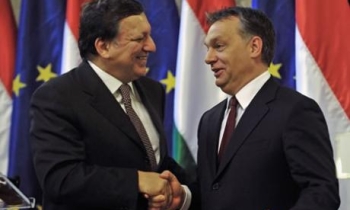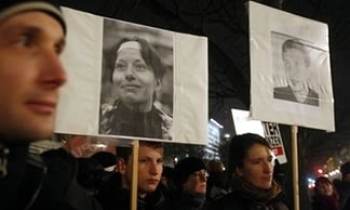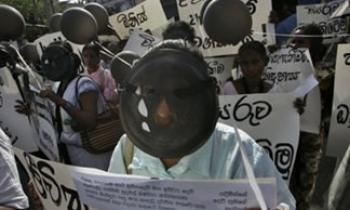ABUJA (Reuters) - A decision to charge two Nigerian journalists with sedition for saying a new presidential jet was second-hand has outraged human rights activists who fear free speech is under threat ahead of next year's elections.
Nigerian and foreign rights groups accuse the government of Africa's most populous country of intolerance towards critics and disregard for the law, arguing that sedition was struck out of the statute books in a 1983 Court of Appeal ruling.
"It's harassment, intimidation and abuse of power ... It's an attempt to cow the press ahead of the 2007 elections," said prominent human rights lawyer Gani Fawehinmi.
The Nigerian press is among the most vibrant in Africa, with numerous private newspapers, radio stations and TV channels that regularly criticise the government in vitriolic opinion pieces.
However, moves against media houses have increased in recent months. Numerous Nigerian commentators link the crackdown to a failed attempt by President Olusegun Obasanjo's allies to rewrite the constitution to allow him to stand for a third term.
The bid was defeated in a Senate vote on May 16.
"The president is venting his anger against the press because of its role in defeating his third term ambition," said Fawehinmi.
Obasanjo, a former military ruler, returned to power as a civilian in a 1999 transition to democracy after 30 years of almost continuous army dictatorship.
"The government in power is finding it very difficult to forget its military background, especially when it is irritated by what someone writes," said Femi Falana, another human rights lawyer and head of the West African Bar Association.
"PREDATOR OF PRESS FREEDOM"
The presidency has not commented on the sedition trial and it says the judiciary is independent. Nor has it commented on the journalists' reports about the presidential jet.
But press freedom groups have expressed concern over the role of a secret police force, the State Security Services (SSS), in numerous arrests of journalists.
"It is particularly worrying that the SSS, which reports directly to the presidency, is behind many of these attacks (on media)," said Ann Cooper, executive director of the Committee to Protect Journalists.
The other main international press freedom group, Reporters Without Borders, says the presidency uses intelligence services as "a political police". The group lists the SSS as a "predator of press freedom".
Adding to these concerns, the Justice Ministry has tried to dismiss the head of the Human Rights Commission, a government agency, after he issued a statement criticising the arrest of one of the journalists who has since been charged with sedition.
A spokesman for the commission said no reason was given for the dismissal of Bukhari Bello, its executive secretary, who has refused to step down.
Human Rights Watch, a New York-based group, has condemned the move to dismiss Bello as "politically motivated".
No one was available for comment at the offices of the attorney general or the director of public prosecutions.









